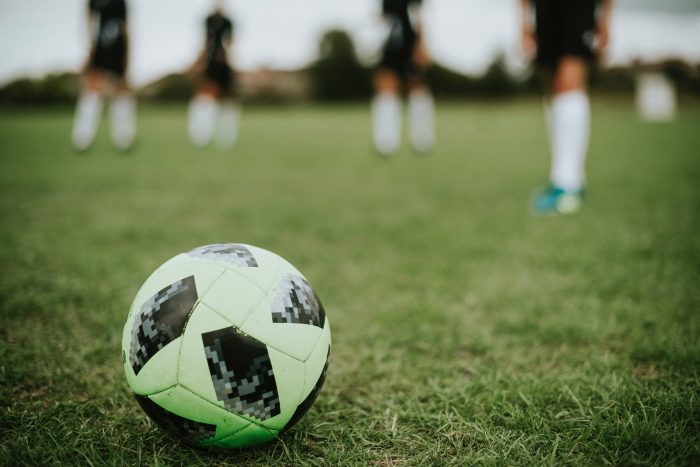This past week I hosted a free online webinar about how to take a technique learned in class and make it something that is actually an internalized skill. This is a process that is well understood in sport science but very under-practiced within HEMA. The norm in many clubs and study groups is simply to learn rote skills in class or from studying manuals and then after some isolated exercise, spar.
Some skills can be learned in this way. I certainly went years training in similar fashion, though I was actually motivated to do a lot of at home drilling at an early stage. I wanted to put in more time than I could in the few hours a week when I could gather with others to spar. The issue is not whether skills can be learned simply through open play and experimentation, it's whether that is the most efficient and thus the fastest and most effective manner.
Soccer and Sport Science
Soccer is an area that has had tremendous attention for sport training models. It's interesting to watch the evolution of training from primarily drilling and playing based models to drills, mini-game, and scenario-based training. There is no high level team in the world that trains simply through playing full games (or even short ones)—what we would call "sparring". The problem is that it is too non-focused and takes too long to provide a critical amount of precision training.
This is true for martial arts as well. If you are trying to improve the quality of your inside parry, the absolute slowest training environment you could choose would be sparring. In ten minutes of bouting you might only receive the specific attacks you need a few dozen times and your capacity to recognize those times and be present enough to affect an improvement would be a fraction of those repetitions.
- 10 minutes of bouting ->
- 20 attacks to the inside from your partner ->
- 5 opportunities that you recognize and attempt to affect change ->
- all combines for 1 quality repetition every two minutes
- 5 opportunities that you recognize and attempt to affect change ->
- 20 attacks to the inside from your partner ->
You can only imagine how many more quality repetitions someone doing a more focused training model could achieve in that same time frame. More quality reps in less time means faster improvement.
The Importance of Context
The most focused environment for a practicing a specific skill is an isolated drill. I.e., you partner makes a single attack "cue" and you "respond", making the defense, over and over. The problem with this, and the reason that soccer in many ways is de-emphasizing rote drilling, is that it's divorced from the context so much so that the cue might be too artificial to create effective learning. To get clearer: someone making an attack in a fight often looks quite different from that same attack in a drill. The consequence being you don't really learn to perceive and respond to the action as it really appears when you need it.
Rote drills are important for making changes to your muscle memory, but it's essential that you move the skill into a more context rich environment to really train your mind to appropriately perceive and respond to the larger tactical environment. Now the mistake is to leap immediately from drills into no-limits sparring.
What soccer trainers do (and trainers in most professional sports whose training methods I've studied) is move from drills into small scenarios. These are essentially drills that take a micro-section of the game involving only a few choices and play them over and over again. This is also done through making mini-games, that are essentially scenarios with winning objectives and constraints that restrict the skills that are employed to those that are being targeted for training.
This microcosm of the overall game can then allow you to get many more targeted reps of the desired skill in a smaller space of time. It is also much easier to focus on the improvements required, see improvements and challenges, and offer directed coaching.
The Learning and Refinement Cycle
What I describe in further detail in the webinar is a nine-stage process that goes from technical training through to free sparring and analysis that breaks down how we apply these strategies in HEMA training. Check it out and stay tuned for more focused sessions on each of those stages in the coming months. You can find this webinar and others on our learning portal Duello.TV. You can login with a free account there and then visit the HEMA Webinars page here:
https://duello.tv/exercises-applied-combatives/hema-webinars/
